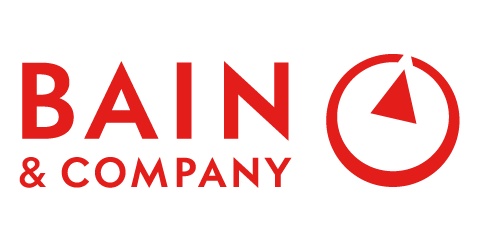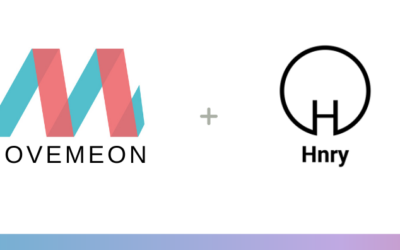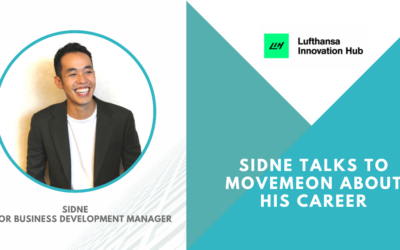Movemeon employer spotlights are a series of articles highlighting our clients. They detail the internal company culture, employee experience and outline their ideal candidate.
Here, we speak to Oliver, Chief of staff at My Tutor.
Interested in working at My Tutor? Click here to view live roles
—
You started as a teacher before joining Bain, then moving to industry. It’s an unusual story – please tell us a bit more.
I’ve been working now for over 10 years. I started off joining Teach First, just after the financial crisis. As I was making my decision, coming up to the end of my second year at university, I’d originally had consulting in mind.
My original plan was to stay for 2 years and then move on to something else, but I ended up staying for 5 years because I really loved the impact and the development opportunities. It was a very difficult career, especially the first couple of years, but I also learnt a lot. I improved my resilience, and my communication and leadership skills – from engaging a class of disengaged students for hours every day to getting a leadership position fairly early on: I was head of year within 2 years, and then became head of department after 3 years (at a new school). You probably wouldn’t get these sorts of early opportunities in management consulting or banking.
I felt that I was having a lot of impact too, but after 3 years of teaching, I wanted to take that next step. Ultimately, I was back to consulting as the ideal step as it would build out my business skills and give me greater insight into a range of industries. After researching a number of firms and interviewing for a few, I got through to the final round at Bain but wasn’t given an offer. I really liked Bain so I decided to hang on and reapply in a year or so, using the extra experience.

In 2015, I eventually joined Bain as an Associate Consultant, looking forward to the on-the-job training, e.g. complex financial modelling. I enjoyed my time at Bain – there are great learning opportunities, you meet really intelligent people, and you deal with really interesting problems that are also in the media (the kind of things I was using as case studies in Business classes, interestingly). I stayed for almost 3 years, but eventually, I realised I wanted to try something beyond consultancy; something more operational within a business. I ultimately didn’t want to be advising businesses forever, I wanted to be involved in running them.
Once I decided to leave Bain, I felt it was best to leave soon so I could progress quickly in my new career. When I was looking, I was approached by a few recruiters and I also saw a role on Movemeon at Ocado (International Commercial Project Manager). I ultimately got in through another channel, but I applied because I was really interested in the industry. I’d done some cases in both retail and grocery, and I liked working with tangible products. I was also really interested in the tech side — I liked the combination of an industry everyone is familiar with, but one that is at the same time going through a really significant shift. Ocado was really at the forefront of that shift. I also wasn’t sure whether I wanted to work for a corporate or a startup, but this opportunity presented the best of both worlds: I was joining a team within Ocado Solutions, which was a relatively new part of the broader organisation, and when I joined there were c. 30 people there. It felt like a startup within something bigger.

I had a great time at Ocado – I joined in 2018, and a month later the CEO of Ocado signed a major deal with the CEO of Kroeger, which increased the share price of Ocado by >2x and propelled it into the FTSE100. It was a really exciting time to be a part of Ocado, and as we got more publicity and more funding, we were able to secure more deals too. It was a really interesting time to be in the commercial team, and I actually worked on the Kroeger partnership itself.
I spent just over a year there, when I was approached about a role at ViaVan. I had been thinking about moving into something more operational and strategic, and the new role offered just that. I also liked the fact that it was a startup, and a step up in seniority. Due to my 5 years in teaching, I felt that I was a bit behind some of my peers so the chance to catch up appealed to me. Finally, the role was based in Amsterdam, a city I fell in love with during a Bain project, so when I was offered the role, it was a no-brainer.

At ViaVan, my main focus was on user growth. I took ownership of acquiring new users, increasing engagement, and forming new partnerships with other startups. For example, I formed a partnership with Deliveroo where if someone took a late-night ride with ViaVan, we could send them push notifications for money off Deliveroo. It was a really great organisation and environment, but not a good move in terms of timing. ViaVan’s product is shared taxi rides, which did not go well with COVID. Not only did it really reduce transport, it also really put people off sharing taxis. When the crisis hit in February/March, we spent about a month fighting fires. We tried to cut costs and really make the business break even. We managed to get there, and it was a really valuable experience navigating the business through the difficult period. Nevertheless, because of the broader environment the board took the decision to shut down a number of its consumer operations and mainly focus on B2B software. They eventually shut down the Amsterdam office in May, which was just a month before my first child was born.
While at first a very difficult time, in retrospect there were benefits to the timing – I took 3 months of paternity leave while I was still employed by ViaVan. I continued to keep an eye on the job market, but I mainly focused on looking after my wife and son. Once that paternity leave came to an end in September, I took a couple of freelance jobs, and I’m starting a permanent job in January. I wanted to take freelance roles so I wasn’t rushed into a decision about a permanent position – I could continue to be paid and gain experience while also being able to think about my next move.
While still freelancing, I was offered a role at Ahold Delhaize, a multinational retailer based in the Netherlands, where I’m going to be Director of Digital Strategy & Ecommerce. It’s an exciting role that’s going to combine my experience in the grocery industry, passion for tech, strategic experience at Bain and operational experience after that.
How useful did you find your teaching experience compared to your consulting experience, as you’ve progressed through your career?
Incredibly useful, but its usefulness has come as I’ve progressed through my career – e.g. for stakeholder management, for presenting dry information in an engaging way. This was less useful for me when I was in consulting, where my role was much more analytics focused. But it’s been really helpful as I’ve had to do management, presentations and stakeholder management since then.
You mentioned wanting to progress in seniority fairly fast. How did you present your experience to prospective employers to help you achieve this?
As an example, for this most recent job I framed my story as 10 years of experience across commercial, strategic and operational functions with management positions since my second year after university. I frame my experience in a way that allows me to explain teaching more easily, and it is more coherent as a leadership journey across multiple industries. Having the credibility of, say, a Bain on your CV also helps.
I should also say that once you are through the initial screening process, employers usually focus on your relevant experience. With Ahold Delhaize, I was able to rely on the retail and grocery cases I did at Bain, and the Ocado experience, to talk convincingly about my view of the industry, and what you need to do to be successful.
Freelancing can be quite a big decision; can you talk a bit about the pros and cons?
In the position I found myself in, there was no disadvantage in some ways. I knew I would have no permanent job in a few months’ time, so my options were a permanent one, but possibly not the right one for the medium-to-long-term, or freelancing. I wanted to be very careful about my next permanent job because I’d spent relatively short times at Ocado and ViaVan. So freelancing felt like a good option to continue paying the bills while I looked for a permanent role.
If my personal situation was different, I may have stuck with freelancing for longer. But we’ve recently bought a house in Amsterdam, and my young child is starting daycare here. So the stability of a permanent job was a big draw for me- one of the big cons of freelance is that you are living project to project. Otherwise, the bigger concern to me with freelance is the question of progression. If I were to do 3 years of freelance work and then wanted to go permanent, would I be able to move into as senior a position as I would have done had I spent the last 3 years working my way up in a permanent position?
You’ve worked for both larger and smaller organisations. What do you see as the pros and cons there?
I still don’t know what my preferred size of organisation would be – I think much of it is down to the culture and size of your team. What I’ve generally found is that the smaller an organisation, the more entrepreneurial and flexible it can be. For example, I’ve really enjoyed that lack of bureaucracy during my time at ViaVan: the fast pace, the fact that my role changed at least twice… The smaller the organisation, the more likely you are to see quite significant changes to what you are doing. However, the lack of stability and uncertainty during crises is a big factor to consider.
There’s a lot more stability in larger organisations. That can bring downsides too – there are a lot more meetings in larger organisations, to gain alignment. And generally, there are a lot more layers to go through to make decisions. However, larger organisations with the right culture can offer you much greater reach and impact, as well as flexibility to progress within the organisation. So I think the organisation itself is more important than the size.
Do you have any advice for people looking for jobs during COVID?
Short-term, my advice is to stay positive. It can be very easy to get depressed about your prospects, especially if your job’s at risk. But particularly those with a consulting background have skills and experience that will always be in demand.
Long-term, it’s good to also think about where the growth will be over the next 2-5 years – not necessarily COVID itself, but how businesses are going to change because of it. It you are thinking about change, try to move somewhere that will be transferable further down the line too by developing expertise in future growth areas.
Click here for more insight into other organisations hiring on Movemeon.com


